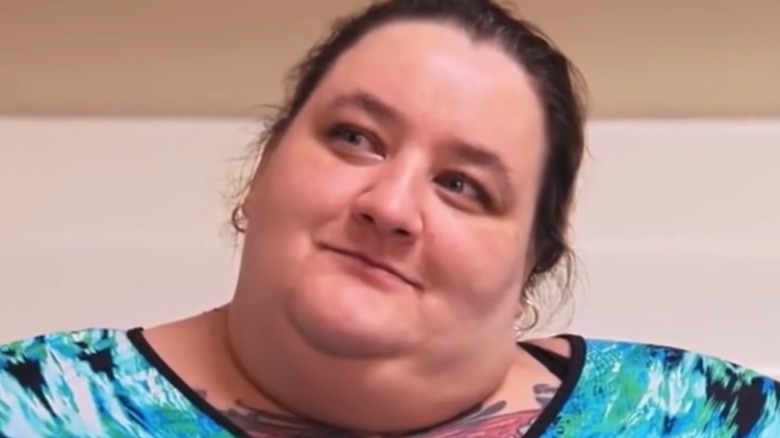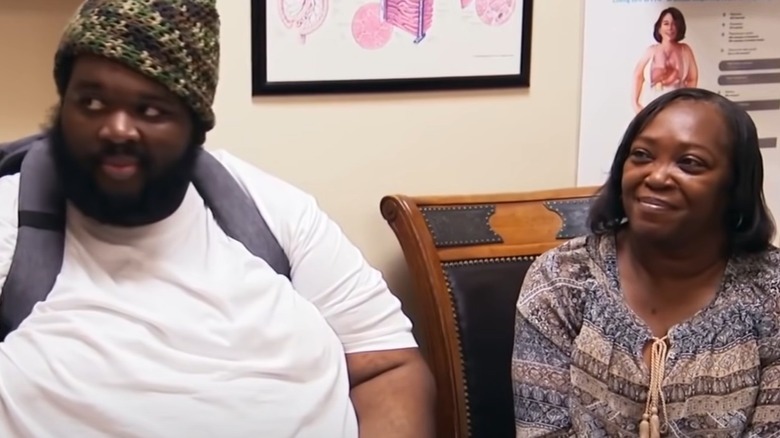How My 600-Lb Life Fans Really Feel About The Enablers
TLC's catalog of health and wellness shows has grown exponentially over the years, now including the transformation health series "My 600-Lb. Life," "1000-Lb. Sisters," and "1000-Lb. Best Friends." Though each of these three shows chronicles different people, every person featured generally shares a commonality — enablers.
Sometimes, an individual who weighs over 600 pounds has supportive loved ones who want them to get healthy. But too often, they reside with a spouse, sibling, or parent who enables their food addiction. Whether it's a seemingly-loving mother who just wants to make her son his favorite dish or a boyfriend who has an unhealthy obsession with morbidly obese women, there are various types of enablers.
For example, in Season 9, Episode 2 of "My 600-Lb. Life," Thedrick Barnes, whose weight has reached 750 pounds, is driven hundreds of miles by his mother to see bariatric surgeon Dr. Younan Nowzaradan in Texas. Despite the purpose of the trip being to save Thedrick's life, his mom makes regular stops along the way to purchase fast food in order to make him happy and comfortable.
Dr. Now from "My 600-Lb. Life" and Dr. Charles Procter from the two "1000-Lb." series frequently try to get these loved ones involved in their patient's health journey. However, many family members can still serve as a detriment, either on purpose or accidental. On Reddit, viewers of "My 600-Lb. Life" have strong feelings about enablers, who they believe aren't all out for sabotage.
Fans explained the various types of enablers
Many fans of "My 600-Lb. Life" are in agreement that there are a few kinds of enablers: ones who do it intentionally, ones who simply can't handle the situation any longer, and ones who just want to feel needed. In the case of the first, some enablers are "feeders," who encourage their partner to gain as much weight as possible because they find it attractive (via Scientific American). Others, said u/coyote_123, enjoy being the "hero and rescuer and when the patient started to take charge of their own lives and to need less care, the relationship started to fall apart."
However, a large number of enablers don't mean to make their loved one's health worse. They simply crack under the pressure of caring for someone with food addiction. If there's a long history of this with one person, the enabler, who is supposed to be encouraging their loved one to improve their health, may be unable to take the intense stress and just decide not to fight with them anymore. Relating to that, there's also the fact that it can be uncomfortable for someone to monitor the food intake of another adult. U/coyote_123 said, "It would feel very strange and wrong to tell your spouse 'no' in that situation. It would take a lot of mental adjustment."
Regarding family members and support systems like loving mothers who cook up plate-loads of food, u/K80lovescats stressed that there's usually no "maliciousness" in their actions. This user said that in many cases, "She needs to be needed. She needs to make her loved ones happy. She truly doesn't realize that some of her behaviors are actually harmful."

